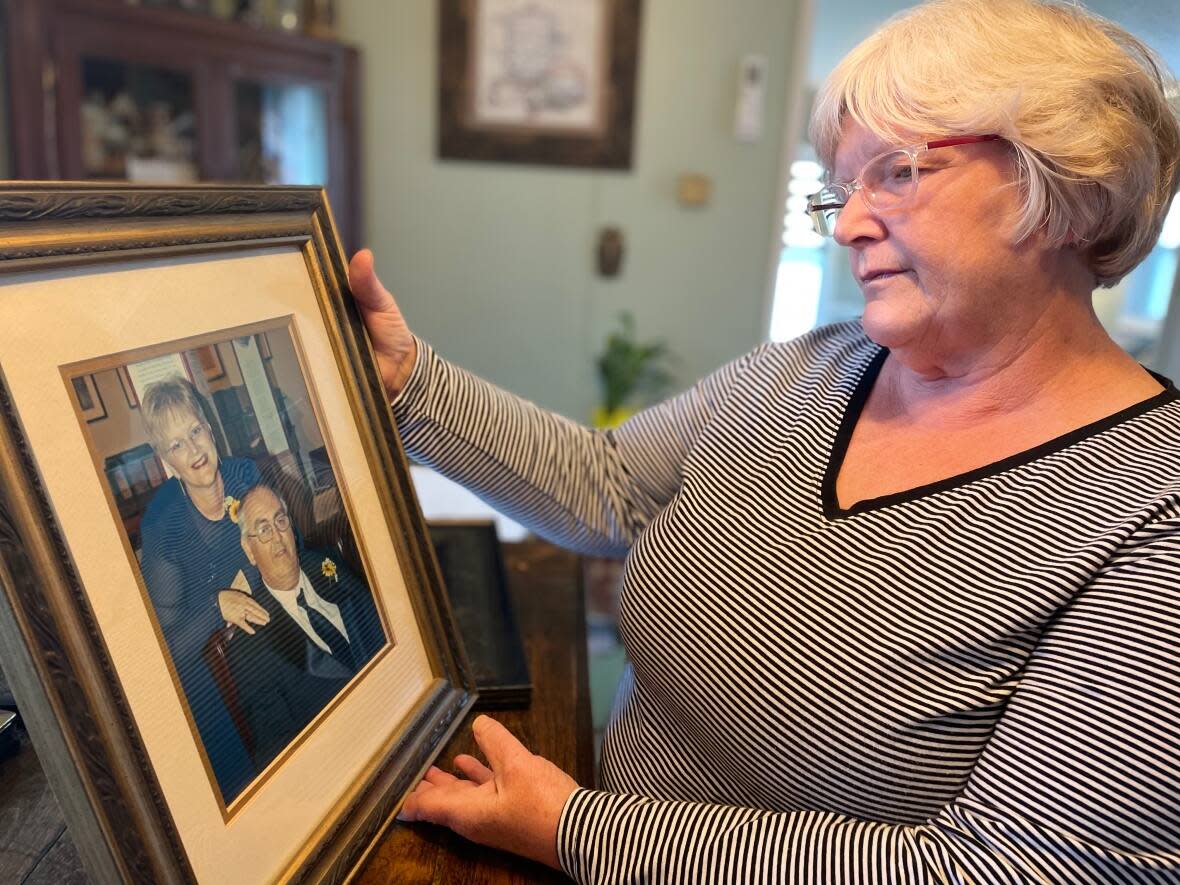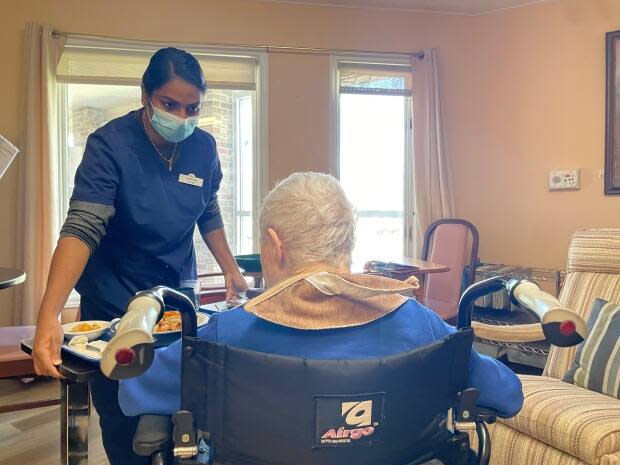With long-term care homes at capacity, man on wait-list feels like 'he's got nothing to live for,' wife says

A couple months ago, Lawrence MacLean developed major mobility issues and was admitted to hospital.
He has osteoporosis, and was told a long-term care home is the place for him.
But there aren't any openings.
So, he's spending his days in an acute care bed at the Queen Elizabeth Hospital in Charlottetown, in a room with three others, waiting for a call that they've found him a spot in long-term care.
"It's very hard," said his wife, Brenda MacLean. "There's times he wishes he wasn't alive, and I can understand why."
She said she is keeping her fingers crossed that a spot opens up in long-term care so he can get the support he needs.
There's times he wishes he wasn't alive, and I can understand why. — Brenda MacLean
"He'd have people to talk to. I think they'd get him up, and probably dressed, and they have activities that go on ... instead of just laying in bed and there's not a whole lot for him. He just feels like he's got nothing to live for."
Lawrence MacLean is one of 187 people currently on the waiting list to get into long-term care facilities. The lack of capacity at long-term care homes is causing a back up in the health system because patients are taking up acute care beds in P.E.I. hospitals.

It's an unfortunate situation Ron Gillespie, a driver and assistant manager with Pat and the Elephant, sees first hand. He regularly picks up people waiting in hospital, to bring them to appointments.
A year ago, his own father spent four months in hospital, on that long-term care wait-list.
He finally got a spot, and passed away days later.
There's a little bit of frustration there. You have to have a lot of patience. — Ron Gillespie
"There's a tendency to be sad at times. There's a little bit of frustration there. You have to have a lot of patience."
Jason Lee, CEO of P.E.I. Seniors Homes and vice chair of the P.E.I. Nursing Home Association, said the only solution to capacity issues is to build more infrastructure.
"We're seeing that demand is rising again and of course we expected that with the aging population that we would be in a situation like this for the coming decade where the demand is going to only increase."

Andrew MacDougall, executive director of community health and seniors care at Health P.E.I., said there is no plan to create more beds, and that P.E.I. already has among the highest beds per capita in Canada.
He said on average, Islanders spend about three years in long-term care, a year longer than most Canadians.
It's one reason Health P.E.I. has a renewed focus on keeping more seniors in their homes or with their families for longer, with support from the province.
"We've been quite clearly, and demonstrably, investing a whole lot into primary care, a whole lot into home-care programming and services…. And that really fundamentally, is where we need to continue to focus and go," he said.
"Building more long-term care beds is not the solution, and we certainly have seen the challenge we've had in even trying to open new beds."
Though Brenda MacLean said that doesn't help her husband now.
"I'm hoping that something will turn up really really soon for him. And for others too. It's not right."


